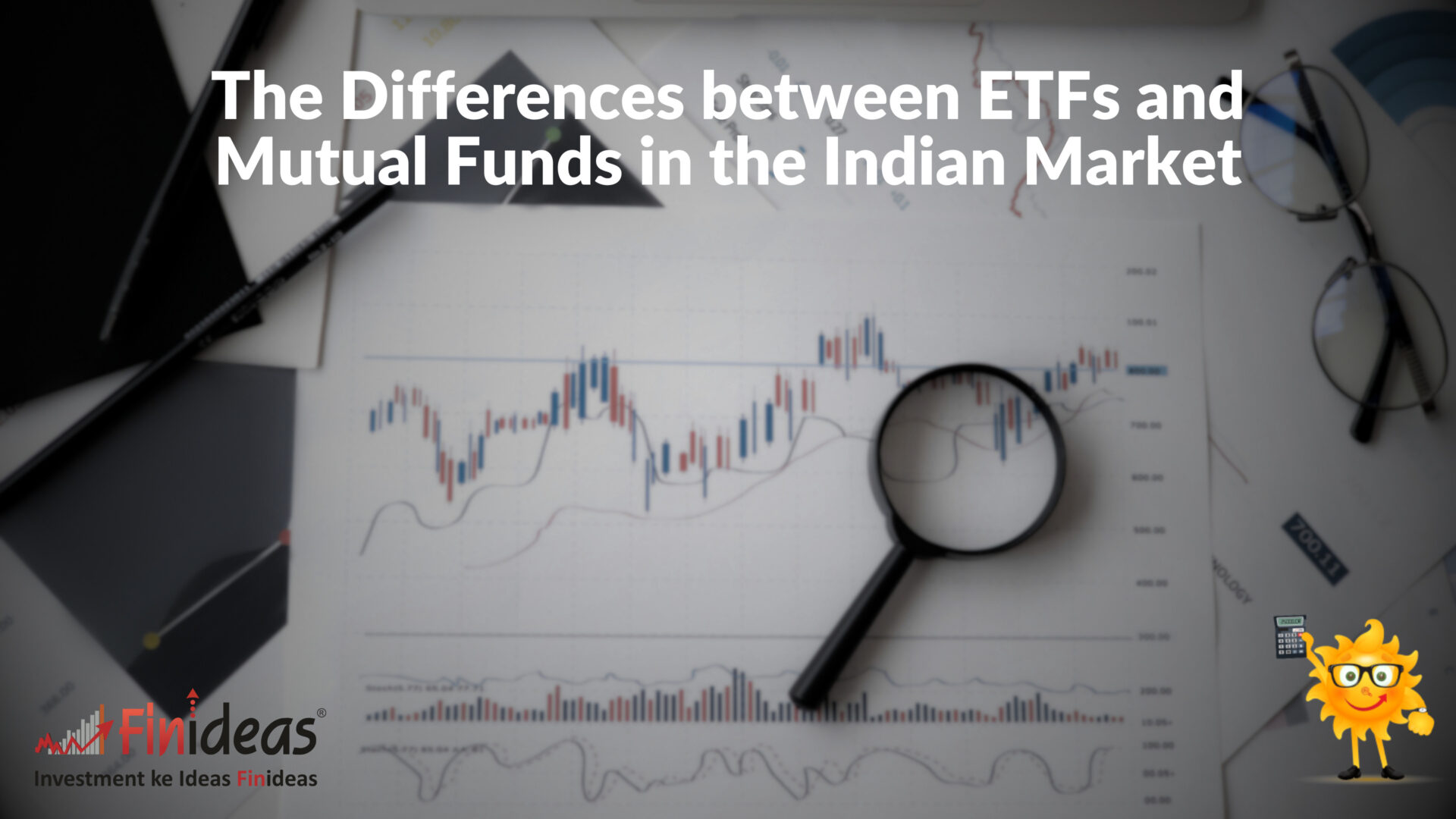Introduction:
In the realm of investment options, both Exchange-Traded Funds (ETFs) and mutual funds are popular choices among investors in the Indian market. While both offer opportunities for diversification and professional management, they differ in structure, trading mechanisms, costs, and tax implications. In this blog post, we will delve into the key differences between ETFs and mutual funds, helping you understand their unique features and make an informed investment decision.
- Structure:
ETFs and mutual funds differ in their underlying structures. Mutual funds are open-ended investment vehicles, meaning they issue new units to investors and redeem units at the net asset value (NAV) at the end of each trading day. ETFs, on the other hand, are structured as open-ended funds but trade on stock exchanges like individual stocks throughout the trading day. ETFs can be bought and sold at market prices, allowing investors to take advantage of intraday price movements.
- Trading Mechanism:
Mutual funds are typically transacted directly with the fund house at the NAV price calculated at the end of the trading day. Investors place orders to buy or sell mutual fund units based on the NAV at which the transaction is executed. In contrast, ETFs trade on stock exchanges, allowing investors to buy and sell units at prevailing market prices during trading hours. This real-time pricing and the ability to trade throughout the day provide increased flexibility for investors in ETFs.
- Costs:
When it comes to costs, there are notable differences between ETFs and mutual funds. Mutual funds often have higher expense ratios, as they involve active management by fund managers who aim to outperform the market. These expense ratios cover management fees, administrative costs, and other operational expenses. On the other hand, ETFs are typically passively managed and aim to replicate the performance of an underlying index. As a result, ETFs tend to have lower expense ratios compared to actively managed mutual funds.
- Tax Implications:
Tax implications differ for ETFs and mutual funds in the Indian market. Mutual funds are subject to capital gains tax when investors redeem their units. The tax rate depends on the holding period, with a distinction between short-term capital gains (holding period less than 36 months) and long-term capital gains (holding period more than 36 months). In contrast, ETFs are treated like stocks for tax purposes. Investors are subject to short-term capital gains tax if they sell ETF units within 12 months and long-term capital gains tax if they hold ETF units for more than 12 months.
- Intraday Trading and Liquidity:
ETFs offer intraday trading, allowing investors to buy and sell units at any point during market hours. This feature provides flexibility for short-term traders and active investors who wish to capitalize on intraday price movements. Additionally, ETFs tend to have higher liquidity due to their trading on stock exchanges. Mutual funds, however, are only traded at the end of the trading day at the NAV price. This lack of intraday trading can limit the liquidity and immediate access to funds for mutual fund investors.
- Minimum Investment Requirement:
Mutual funds often have minimum investment requirements, meaning investors need to meet a specific threshold to invest in a particular fund. This requirement can vary depending on the fund and its share class. In contrast, ETFs do not have such minimum investment requirements. Investors can buy ETF units in any quantity they desire, allowing for greater flexibility and accessibility for investors with smaller investment amounts.
- Transparency:
ETFs provide daily transparency of their underlying holdings, allowing investors to know the exact composition of the ETF’s portfolio. This transparency enables investors to make informed decisions and understand their exposure to specific stocks or sectors.
Happy Investing!

